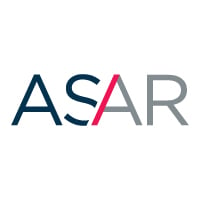

Legal director | Gastronomica



Elias Safi
Legal director | Gastronomica
Jurisdictions your role covers: Kuwait, United Arab Emirates, Kingdom of Bahrain, Kingdom of Saudi Arabia, Sultanate of Oman and State of Qatar.
What are the major cases or transactions you have been involved in recently?
Recently, I have been actively involved in a range of high-profile and complex matters, including franchise structuring and expansion, licensing agreements across various sectors, joint venture agreements (JVAs), acquisitions, and a variety of strategic commercial contracts. Many of these transactions have involved cross-border elements within the GCC, requiring bespoke legal strategies to align with both local regulations and broader business objectives.
How do you approach managing legal aspects during periods of instability or crises, and how does your legal strategy align with the broader business strategy to ensure the organisation’s resilience?
During periods of instability or crisis, I adopt a proactive, risk-based approach to managing legal matters. This includes staying ahead of regulatory changes, identifying and mitigating potential legal exposures, and maintaining open, transparent communication with key stakeholders. A critical part of this process is managing expectations and ensuring that leadership, clients, and partners understand both the legal risks and the strategic options available. By aligning legal strategy with broader business objectives, we reinforce resilience, ensure informed decision-making, and position the organisation to respond effectively and confidently in uncertain times.
What emerging technologies do you see as having the most significant impact on the legal profession in the near future, and how do you stay updated on these developments?
As in-house counsel, I see emerging technologies such as artificial intelligence (AI), automation, and blockchain having a significant impact on the legal function. AI-powered tools are transforming contract lifecycle management, risk analysis, and regulatory compliance, enabling legal teams to work more efficiently and proactively. Blockchain also offers exciting potential for enhancing transparency and securing transactions, particularly in areas like supply chain and intellectual property management.
While balancing a demanding workload can be challenging, I make every effort to stay informed by engaging with legal tech forums, attending in-house counsel roundtables when possible, and following developments through trusted industry publications and peer networks. I also collaborate closely with internal stakeholders especially IT to evaluate and implement emerging technologies, mindful of budget constraints as we prioritise investments in this rapidly evolving landscape.